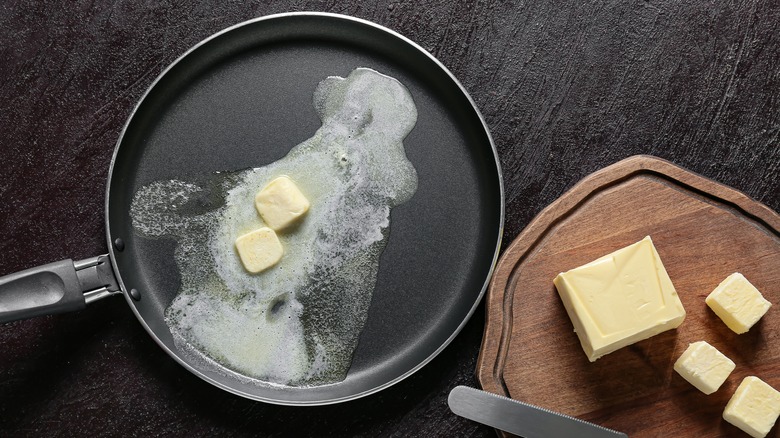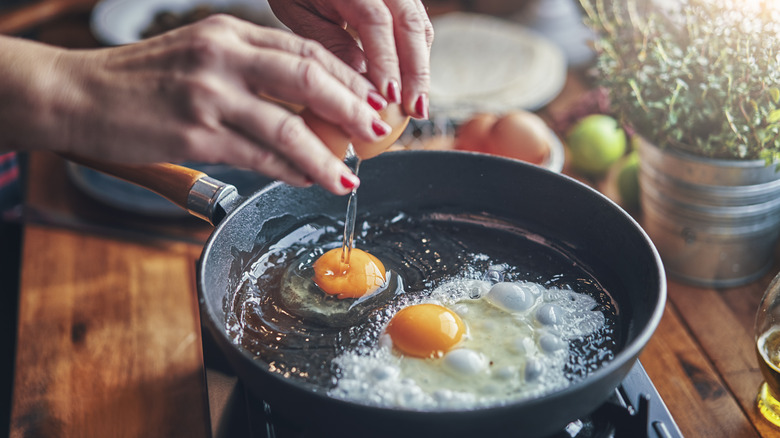The Timing Of When You Add Butter To Eggs Matters
Many preparations for cooking eggs require the use of fat. While the hotly debated topic around making perfect eggs often focuses on which fat is best to use (butter, olive oil, bacon grease, ghee, or something else), butter is arguably the most flavorful. It also gets the thumbs-up from renowned chefs, such as Gordon Ramsay.
It doesn't matter whether you are making an omelet, scrambled eggs, or any other type of egg dish, the timing of adding butter is important. For it to work its magic and give scrambled eggs, for example, a balance between creamy and fluffy textures, it should be added after your egg mixture is in a frying pan or skillet. This allows the butter to melt and stay mingled throughout the eggs during the entire cooking process.
But, whatever egg you are making, the science behind cooking them remains the same. When you heat up an egg, the water inside it evaporates, and the proteins contract, giving it a rubbery texture. America's Test Kitchen revealed that coating eggs with butter while cooking inhibits this from happening, so the end result is eggs that have a much more desirable texture.
Prep your butter so it is most effective when added to your eggs
While the science behind why eggs get tough when cooking is unchanging, and adding butter keeps the proteins from contracting too tightly, not all eggs are cooked the same way. When you are cooking an omelet or frying an egg, for example, the egg remains much more stationary during the cooking process. This means, the butter can melt and run off into the pan before the egg is fully cooked, so you still run the risk of having chewy eggs. To mitigate this potential outcome, with a fried egg, simply start with the egg in a bowl and add the diced butter before gently pouring it into the pan at a low angle.
The fix for eggs that aren't agitated during the cooking process, but are still mixed, such as omelets, is to dice and chill the butter before adding it to your egg mixture. This ensures that the butter is spread throughout your eggs, even if you aren't stirring them after they hit the frying pan. An even better method is to freeze the diced butter as this will help keep the cubes from melting prematurely.

